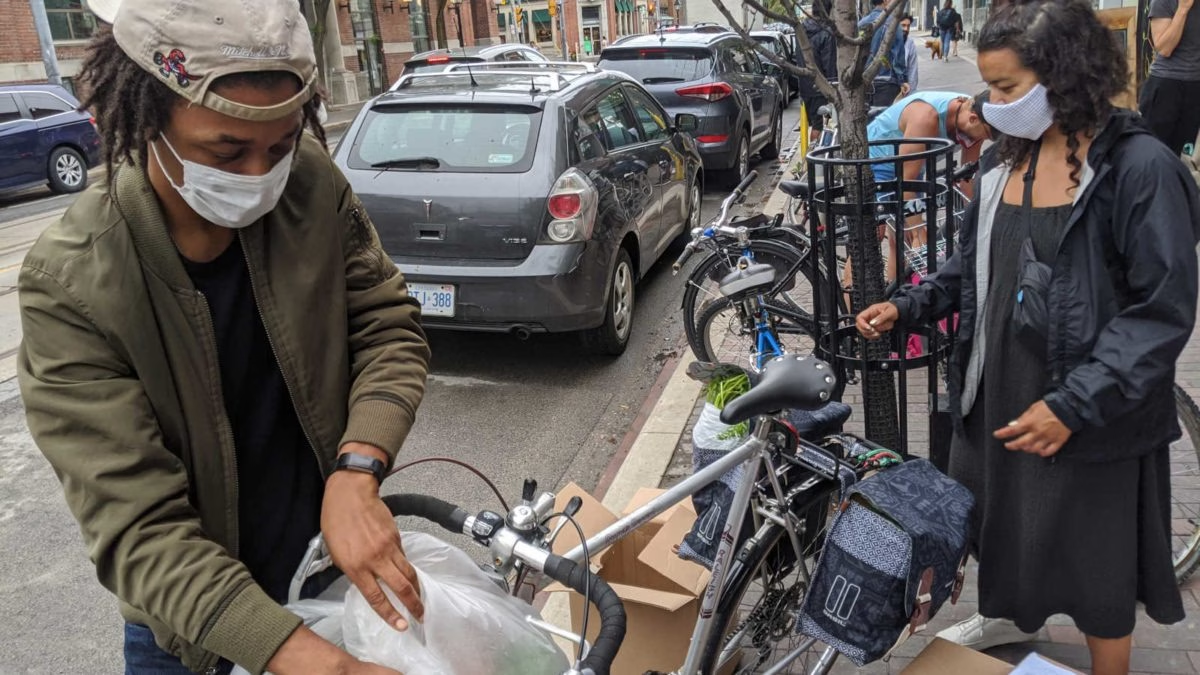Toronto’s ongoing bike lane controversy is drawing concern from unexpected corners: local aid groups say removing protected lanes could threaten food delivery programs that serve vulnerable residents.
Community Fridges TO (CFTO), which runs seven community fridges across the city, relies on volunteers cycling produce from farmers’ markets and food banks. Bike Brigade, a volunteer group, also partners with CFTO to deliver directly to people who cannot travel to aid locations.
“I think it would have a massive negative impact on us and the community members that we serve. Some of the programs we have would end,” Joy Gough of CFTO said, speaking to the CBC. For many seniors, people with disabilities, and immunocompromised individuals, these deliveries may be their only access to fresh food.
Cycling allows volunteers to move quickly through congested streets. That means bypassing parking headaches, and building connections with recipients. “It becomes more of a social event. It’s not just somebody shoving a bunch of food in the fridge and getting back in their car and leaving,” Gough said.
Cyndi Gilbert, a board member at Bike Brigade, noted the scale of the operation. Volunteers travelled roughly 14,500 km last year, partnering with 35 social service agencies to make 8,000 deliveries. “With protected bike lanes, when cyclists feel safe to ride. It is quite simple to get around the city, to lock up your bicycle, to make a delivery,” she said.
The province plans to appeal a July court ruling that blocked the removal of lanes on Yonge Street, Bloor Street, and University Avenue. The government argues removing lanes will ease congestion, but Justice Paul Schabas found the change would not reduce traffic and could increase collisions. This followed Premier Doug Ford passing Bill 212, which also required municipalities to receive approval from the Ontario government for bike lanes which may affect traffic.
Toronto faces serious food insecurity, with one in four households affected, according to the CBC. Volunteers warn that ripping out bike lanes would jeopardize not just cycling infrastructure, but crucial community support networks.
Click Here to Read the Full Original Article at Canadian Cycling Magazine…

